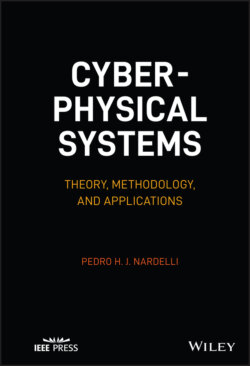Читать книгу Cyber-physical Systems - Pedro H. J. Nardelli - Страница 17
1.6 Summary
ОглавлениеIn this chapter, we highlighted the reasons why a general scientific theory of CPSs is needed. We have briefly reviewed the beginnings of two related scientific fields, namely control theory [4] and information theory [12], contrasting them with the more philosophically leaned cybernetics as introduced by Wiener in [6]. To avoid potential threats of theoretical displacements of scientific theories, we have explicitly stated the philosophical standpoint taken in this book: science is a formal discourse holding true objective knowledge about well‐defined abstract objects, which produces a knowledge effect on particular concrete objects. Scientific theories are then the result of a theoretical practice that produces new knowledge from historically determined facts and knowledges following a historically determined normative method of derivation and/or verification, which depends on the science/object under consideration. This leads to a philosophical classification that identifies three broad classes of scientific rationalities, helping to avoid misunderstandings of scientific results. The philosophical position taken here follows the key insights introduced by L. Althusser [8, 9], and I. Prigogine and I. Stengers [10]; the classification of different scientific rationalities is motivated by the work of Lepskiy et al. [11, 15] (although I do not share their philosophical position).
